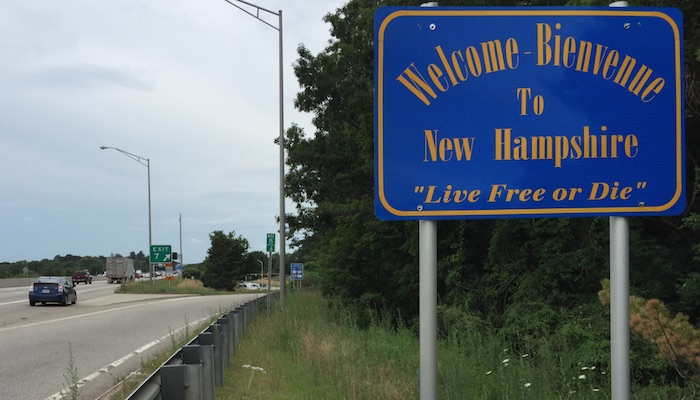
Last week, the New Hampshire Executive Council signed off on $1.3 million in additional spending to cover increases in several major roadway construction projects across the state.
The state Department of Transportation, which requested the increased spending, cited the rising cost of fuel and asphalt in requests to amend contracts for the projects.
By Christian Wade | The Center Square
The cost of resurfacing roadways in New Hampshire is going up amid high prices for crude oil used to make asphalt and fuel, forcing the state to spend more money on scheduled transportation upgrades.
Last week, the New Hampshire Executive Council signed off on $1.3 million in additional spending to cover increases in several major roadway construction projects across the state.
The state Department of Transportation, which requested the increased spending, cited the rising cost of fuel and asphalt in requests to amend contracts for the projects.
For example, the price tag of a paving project on U.S. 202 and N.H. 9 in the town of Hillsborough will increase by $250,000, to more than $3.5 million, according to NHDOT.
Meanwhile, roadway resurfacing work on N.H. 110A in the towns of Milan and Dummer and on N.H. 16 in Errol will cost an additional $675,000, with the project’s price tag rising to more than $5 million.
The additional funding to cover higher construction costs will come from the federal government, state transportation officials noted in their request to the council.
The rising costs for construction materials comes as New Hampshire and other states look to make use of billions of dollars in federal infrastructure funding.
The federal Bipartisan Infrastructure Law diverts billions of dollars to states to help replace hundreds of aging, structurally deficient bridges, fix potholed roads and improve public transit.
New Hampshire stands to get more than $2.05 billion from the spending bill over the next five years from the law, including at least $1.1 billion for highway upgrades and $225 million for bridge repairs, according to a breakdown from the White House.
Most of the roadway projects that will receive additional funding are included in New Hampshire’s 10-year transportation improvement plan.
Amid lingering supply chain issues, record high inflation and Russia’s war in Ukraine, benchmark crude oil prices have skyrocketed from $70 a barrel last March to about $130 in March of this year.
While the cost has dropped since then to about $100 a barrel, analysts are predicting crude prices to remain high for the foreseeable future, adding to inflationary costs.
Last week, President Joe Biden visited oil exporter Saudi Arabia, de facto leader of the Organization of the Petroleum Exporting Countries, in an effort to boost oil production to help stabilize prices.



“Build Back Bitter”?
There are a whole lot of people here in Vermont that wonder how on earth NH does it..
We have more than double Vermont’s population and a far smaller government and less taxation.
This is how we do it.
So when life hands you lemons, you make lemonade.
Here in NH, We are Making Potholes Great Again..